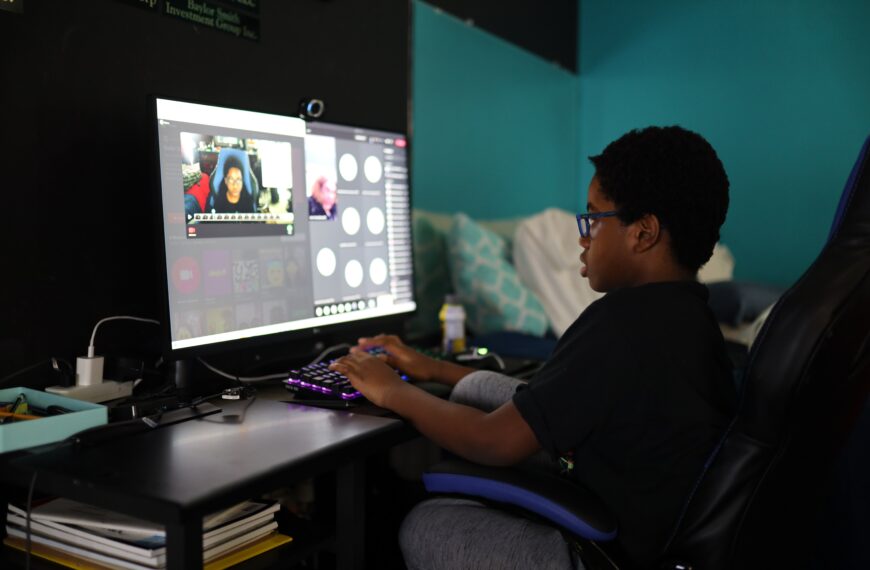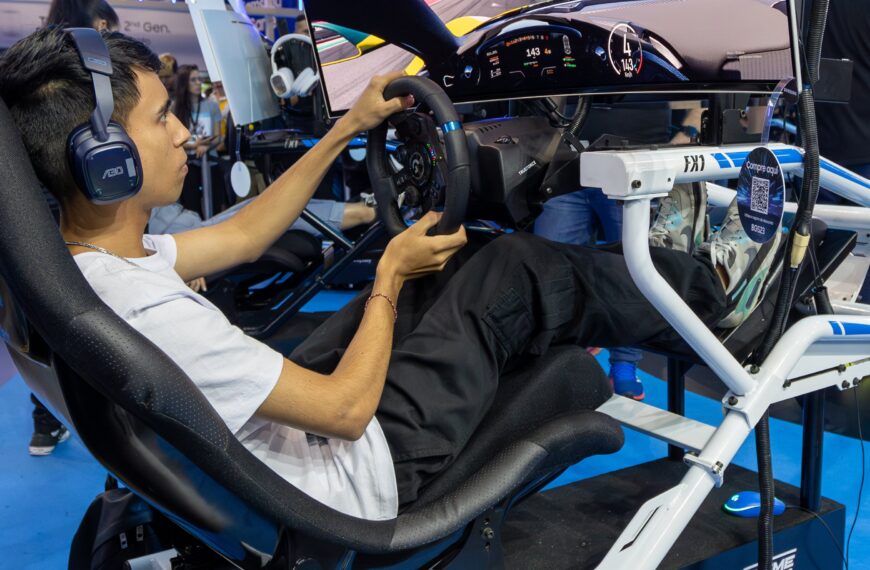Dexterity games offer an exciting combination of fun and skill-building for families. Mayday Games understands the importance of games that not only entertain but also help children improve crucial skills. These games require precise movements, often targeting fine motor skills and whole-body coordination, making them valuable for various learning tasks. One standout dexterity game is “Yummy Yummy Pancake,” which focuses on teaching small, smooth motions of the hand and wrist. If you’re searching for a game that your children will love while also boosting their developmental skills, try one of Mayday Games’ dexterity games today.

Dexterity Games: Skills Building Fun
Dexterity games are an exciting category of board games that require players to use precise movements and coordination. These games are designed to improve fine motor skills, hand-eye coordination, focus, and concentration. By incorporating whole-body movements, dexterity games also provide a fun way to enhance physical coordination and cognitive skills. In this article, we will explore the world of dexterity games, their benefits, recommended age ranges, and provide some popular game recommendations. Whether you are a parent looking to help your child develop essential skills or an adult seeking an entertaining and challenging game, dexterity games are sure to provide hours of fun and skill-building.
What are dexterity board games?
Dexterity board games are a genre of games that focus on requiring players to perform specific physical actions or movements. These actions often involve delicate hand and wrist motions or whole-body movements that demand control and precision. Dexterity games can come in various formats, such as stacking games, flicking games, balancing games, and many more. The objective of these games is to successfully complete the physical task or achieve a goal by using skillful manipulation and coordination.
Examples of dexterity games include “Jenga,” where players must remove and stack blocks without causing the tower to collapse, and “Crazy Circus,” a game where players use their fingers to stack animal-shaped pieces. These games challenge players to utilize their motor skills, balance, and strategic thinking to succeed.
Benefits of dexterity games
Dexterity games offer numerous benefits for players of all ages. From improving fine motor skills to enhancing cognitive abilities, here are some key advantages of playing dexterity games:
1. Improving fine motor skills
Dexterity games require players to perform intricate movements with precision, which helps strengthen fine motor skills. These games can enhance finger control, hand dexterity, and wrist motions. By repeatedly engaging in these movements, players develop better coordination and control of their hands and fingers.
2. Enhancing hand-eye coordination
Dexterity games necessitate the synchronization of visual perception and physical movements. Players must accurately judge distances, angles, and forces to successfully complete tasks. This practice improves hand-eye coordination, a vital skill applicable in many daily activities and sports.
3. Increasing focus and concentration
To excel in dexterity games, players need to concentrate and focus on the task at hand. These games often require steady control and a keen attention to detail to achieve the desired outcome. Regular engagement in such games can improve players’ ability to concentrate for prolonged periods, thereby enhancing their overall focus and attention skills.
4. Boosting cognitive skills
Dexterity games also contribute to the development of cognitive skills. Players must strategize, make quick decisions, and adapt their tactics based on the game’s requirements. This mental engagement enhances problem-solving abilities, critical thinking, spatial awareness, and memory recall.
5. Promoting social interaction
Dexterity games are an excellent way to bring people together and foster social interaction. Whether playing with family or friends, these games encourage communication, cooperation, and friendly competition. Playing dexterity games in a group setting can improve social skills, sportsmanship, and teamwork.
Best dexterity games for small, smooth hand and wrist motions
Some dexterity games are specifically designed to cater to small, smooth hand and wrist motions, making them ideal for players who aim to refine these skills. One such game is “Yummy Yummy Pancake.”
Introduction to ‘Yummy Yummy Pancake’ game
In the game of “Yummy Yummy Pancake,” players take on the role of pancake chefs aiming to flip pancakes on a griddle. The game components include a griddle-shaped board and pancake-shaped tokens. Players must carefully slide and flip the tokens to land them in the correct orientation on the griddle. This game is perfect for developing fine motor skills, as it requires delicate finger movements and wrist control to achieve the desired pancake flipping action.
Other dexterity games for small hand and wrist motions
In addition to “Yummy Yummy Pancake,” there are several other dexterity games that focus on small hand and wrist motions. These games include “Operation,” where players use tweezers to remove body parts without touching the edges, and “Bop It,” a fast-paced game that tests reflexes by requiring players to twist, pull, and bop different parts of the device. These games offer opportunities for players to refine their motor skills while enjoying a lively and engaging gameplay experience.
How dexterity games improve fine motor skills
Explanation of fine motor skills
Fine motor skills are the coordination of small muscles, particularly those of the hands and fingers, to perform intricate movements with precision. These skills are necessary for activities such as manipulating objects, writing, buttoning clothes, and using tools effectively. Dexterity games contribute significantly to the development of fine motor skills by engaging players in tasks that require precise control of these muscles.
Specific fine motor skills developed through dexterity games
Dexterity games target various fine motor skills, including finger and hand control, wrist stability, and hand-eye coordination. Manipulating game components, delicately flicking or placing objects, and performing intricate movements help strengthen and refine these skills. The repetitive nature of dexterity game actions reinforces muscle memory, leading to improved motor control over time.
The role of dexterity games in fine motor skill development
Engaging in dexterity games regularly promotes the development of fine motor skills, even in individuals with existing coordination difficulties. These games provide a structured and enjoyable way to practice specific movements in a stress-free environment. The combination of physical, visual, and cognitive engagement enhances the neural connections responsible for fine motor control, resulting in increased motor proficiency.
How dexterity games improve whole-body movements
Definition of whole-body movements
Whole-body movements refer to actions that require the use of various body parts and coordination between them. Dexterity games incorporate these movements to enhance physical coordination and overall body awareness. By engaging multiple muscle groups and stimulating body control, dexterity games provide an interactive platform for developing whole-body coordination.
How dexterity games incorporate whole-body movements
Dexterity games incorporate whole-body movements through gameplay mechanics that require players to utilize different body parts. For example, balancing games may require players to shift their body weight and maintain stability to prevent objects from falling. Flicking games often involve arm movements to propel game pieces towards specified targets accurately. These games challenge players to coordinate their movements and utilize their bodies effectively to achieve game objectives.
Benefits of incorporating whole-body movements in games
Incorporating whole-body movements in dexterity games offers numerous benefits. These games not only enhance physical coordination but also promote body awareness, balance, and muscle strength. Whole-body movements contribute to the development of gross motor skills, which are essential for daily activities such as walking, running, and sports participation. Additionally, the integration of physical movements in gameplay increases the level of engagement and enjoyment for players, making dexterity games an immersive and entertaining experience.
Recommended age range for dexterity games
Age appropriateness of dexterity games
Dexterity games are suitable for players of various age groups, with different games catering to specific skill levels and developmental stages. Some games are designed for children as young as three years old, while others offer challenges suitable for teenagers and adults.
Factors to consider when determining age range for dexterity games
When choosing dexterity games for specific age groups, several factors should be considered. These factors include the complexity of the game mechanics, the required motor skills, and the level of cognitive engagement. Dexterity games targeted towards younger children often have simplified rules and tasks that are easier to accomplish. As the age range increases, games may introduce more complex actions, strategic decision-making, and higher levels of difficulty. It is essential to consider the developmental abilities and interests of the players to ensure an engaging and enjoyable gaming experience.
Popular dexterity games
Overview of popular dexterity games
There is a wide range of popular dexterity games available that offer diverse gameplay experiences and challenges. Some of the most well-known dexterity games include:
1. “Jenga”: Players take turns removing and stacking wooden blocks to create a tall tower without causing it to collapse.
2. “Crazy Circus”: Players use their fingers to stack animal-shaped pieces on top of each other, balancing them carefully to prevent them from falling.
3. “Pitch Car”: A racing game where players use finger-flicking motions to propel their cars around a track, aiming to reach the finish line first.
4. “Loopin’ Louie”: Players use a lever to control an aircraft and prevent it from knocking down their chicken tokens.
Rules and gameplay of popular dexterity games
Each popular dexterity game has its own unique rules and gameplay mechanics. It is recommended to review the specific rules and instructions provided with each game to understand the objective, actions, and strategies involved. Familiarizing oneself with the rules ensures a smooth and enjoyable gaming experience.
Tips for playing dexterity games
Setting up the game area
Before starting a dexterity game, it is essential to set up an appropriate playing area. Clear any obstacles or fragile objects from the vicinity to prevent accidents. Ensure that there is enough space to accommodate the required movements for the game without restrictions.
Practicing hand-eye coordination
Dexterity games provide an opportunity to enhance hand-eye coordination. Engaging in activities outside of the game that improve hand-eye coordination, such as juggling, throwing and catching objects, or playing musical instruments, can further augment skills that are valuable during gameplay.
Taking breaks to prevent fatigue
Dexterity games can be physically demanding, especially those involving repetitive motions or precise control. To prevent muscle fatigue and maintain optimal performance, it is important to take regular breaks during gameplay. Stretching exercises and hand relaxation techniques can also help alleviate any discomfort or strain.
Creating friendly competition
Dexterity games often thrive on friendly competition. Encouraging healthy competition among players can enhance motivation and engagement. However, it is crucial to maintain a supportive and sportsmanlike atmosphere, emphasizing enjoyment and skill improvement rather than solely focusing on winning.
Modifying the game for different skill levels
Dexterity games can be adapted to suit players of varying skill levels. For younger or less experienced players, introducing simpler variations of the game or modifying certain rules can help build confidence and provide a more achievable challenge. Conversely, for advanced players seeking greater difficulty, increasing the complexity of tasks or incorporating additional obstacles can provide an extra level of excitement and engagement.
How to choose the right dexterity game
When choosing a dexterity game, it is important to consider several factors to ensure it suits the intended players and their skill levels. Here are some guidelines for selecting the right dexterity game:
-
Age appropriateness: Consider the age range for which the game is designed and ensure it aligns with the players’ capabilities and developmental needs.
-
Skill levels: Determine whether the game offers different difficulty levels or variations to accommodate players of varying skill levels.
-
Interests: Consider the players’ interests and preferences. Choose a theme or gameplay style that will captivate and engage them.
-
Group size: Take into account the number of players who will typically be participating. Ensure the game can accommodate the desired group size.
-
Game mechanics: Review the game mechanics, actions, and rules to ensure they align with the players’ motor abilities and cognitive skills.
By considering these factors, players can select a dexterity game that provides an enjoyable and rewarding experience tailored to their needs and interests.

Conclusion
Dexterity games offer a unique and entertaining way to develop essential skills while having fun. These games not only improve fine motor skills, hand-eye coordination, and focus but also promote whole-body movements, cognitive skills, and social interaction. With a wide selection of dexterity games available for various age ranges and skill levels, there is a game suitable for everyone. Whether playing “Yummy Yummy Pancake” to refine small hand and wrist motions or engaging in popular games like “Jenga” for a competitive challenge, dexterity games provide endless opportunities for skill-building and enjoyment. So grab your favorite dexterity game and start honing your skills while immersing yourself in an exciting gameplay experience.








